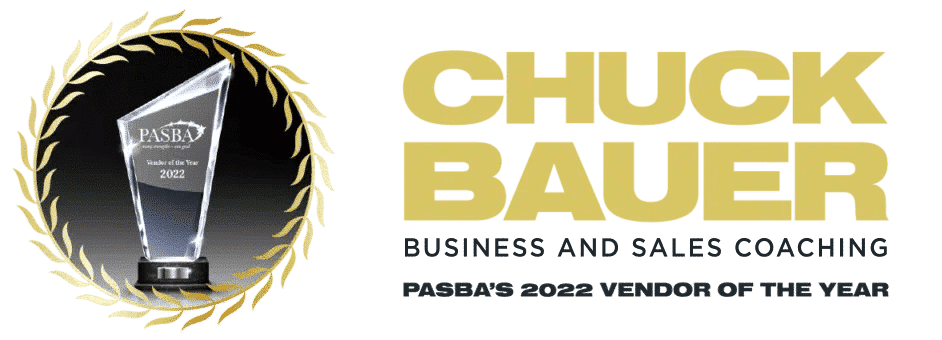Are You At 100% Efficiency or Are You Just Making Excuses?
There are many things involving efficiencies when running a company. Today’s lesson is going to be about achieving 100% efficiency and hitting your goals each and every month, whether you are a salesperson, sales manager, or business owner.
First I’d like to share with you the story of a client company that is in the midst of a four-year contract. I am on-site with them twice a month. Every month there are goals set for the sales department and everyone is aware of those goals and what the percentage is because the company does a fabulous job of reporting to their salespeople: they use an 84-inch monitor that, and at any moment in time, the salespeople, the operations people, and the executive team can look up at and see what the numbers are.
At the end of February, there was great news—and a challenge. The company had a record month. They had record profits. The challenge was that the salespeople were just shy of their goal by less than two percentage points.
When I met with them at the beginning of March, I asked them “Why did we miss it? Why were all these records broken, but the goal not met?” Their excuses were just that: excuses—weather delays, stock issues… they could have just said “Hey, Chuck, we just wanted to go mow the lawn” because all excuses are equal. I counseled them on that day, telling them “I find it funny that you guys always have all these excuses, but the fact of the matter is that you really have to understand the rule of 70%.”
The Rule of 70%
Every salesperson, every sales manager, every sales-related company is 70% inefficient unless they prove to me that they are not.
And that is a rule of thumb across the board. Some C-level executives tell me “Oh, no, we’re very efficient.” But you know what? They don’t know what they don’t know: they are very, very inefficient, and that’s why we here at Chuck Bauer Sales Training & Business Consulting have a thriving company—because companies are inefficient, and they don’t know how to get efficient, so they come to us.
This company I’m working with—if you look at the salespeople, and look at all they have been taught, if they were doing all those tactical approaches, or using psychology, or doing all the other things they know they should be doing, then we could have hit 100% or well over 100% To be 2% shy of 100% is crazy, and it doesn’t take much to get over that hump.
Guess what happened in March?
Same situation. We have record growth gross production. We have record profits again. And at the same time, the sales team hits 98.3%. Again, why are they not hitting 100%? I talked to them just a couple of days ago. The same excuses they used in February are the same excuses they used in March. But they don’t put the spotlight on themselves and really embrace the fact that unless they are doing everything they’ve been taught by me, or the vice-president of sales, or the president of the company, they are still running at a pretty low efficiency.
It’s incredible how you can look at these numbers and see how they come into play and how if you can increase efficiencies with everything you do in sales or marketing or whatever, you will get an automatic bump from both a gross production standpoint and a profitability standpoint.
It was really interesting to have the same discussion two months in a row. You as a salesperson need to know that you are inefficient. You have to admit that you are 70% inefficient. To understand this, you have to evaluate everything in your sales world as efficient or inefficient. Just letting your phone ring out loud and penetrate your consciousness is very, very inefficient. To improve efficiency, we teach silent phones. Now, for those of you who don’t understand that principle, don’t panic, because we have other ways for our clients and customers to communicate with us. Another example of inefficiency is the nauseating amount of emails that you get every day and have to open up and read to determine the level of severity and the course of action. This by itself takes up valuable time. As with time taken up by answering the phone, there are ways to prevent this.
Small Improvements Can Lead to Big Results
Here’s the last thing I want to share with you: I coach well over fifty CPA and accounting people in different groups and on an individual basis as well. I had one of my CPAs run some numbers for me:
If each of you would improve 1/10th of 1% each day, that would mean at the end of 252 sales days, you will have improved 35%.
I also had the numbers run this way: If a salesperson improves 1/10th of 1% on a daily basis for 365 days, what would the percentage be? It would be 70%. I thought about that for a second. Professionally, what a bump we could get if we just made slight improvements every day! Personally, if we could just make a slight improvement every day, what would we have at the end of the year!
These are very important statistics that I will be sharing with all of my clients so we can really understand, remember, and absorb into our consciousness that we can’t be complacent: we always need to be looking for ways to work better, faster, more efficiently. We need to learn how we can control our environment, instead of our environment controlling us, which happens so much out there.
Never Stop Improving
I hope you take away what I’ve told you as a positive message that you can reflect on and use to help your own individual work and personal life and really embrace the 70% rule, admit inefficiency, and then follow up by finding and implementing ways to chisel down that 70%. Say to yourself “If I just improve 1/10th of 1% on a daily basis over time, there will be a 35% increase in sales and perhaps even a 70% increase on a personal level.”
So here are some great numbers for you to think about. Please don’t automatically, when things don’t go exactly right, refer to excuses. Accept responsibility and look at how to fix challenges right on the spot. Then, more importantly, go to a multi-dimensional type of thinking: “Here is an issue, here’s how we fixed it, but how do we prevent it from occurring again?”
There are many things are involved in efficiencies when running a company. I know this message is of value to my clients and client companies and I hope it is of value to you. I wish for blessings for each and every one of you. I hope to hear from you soon.



